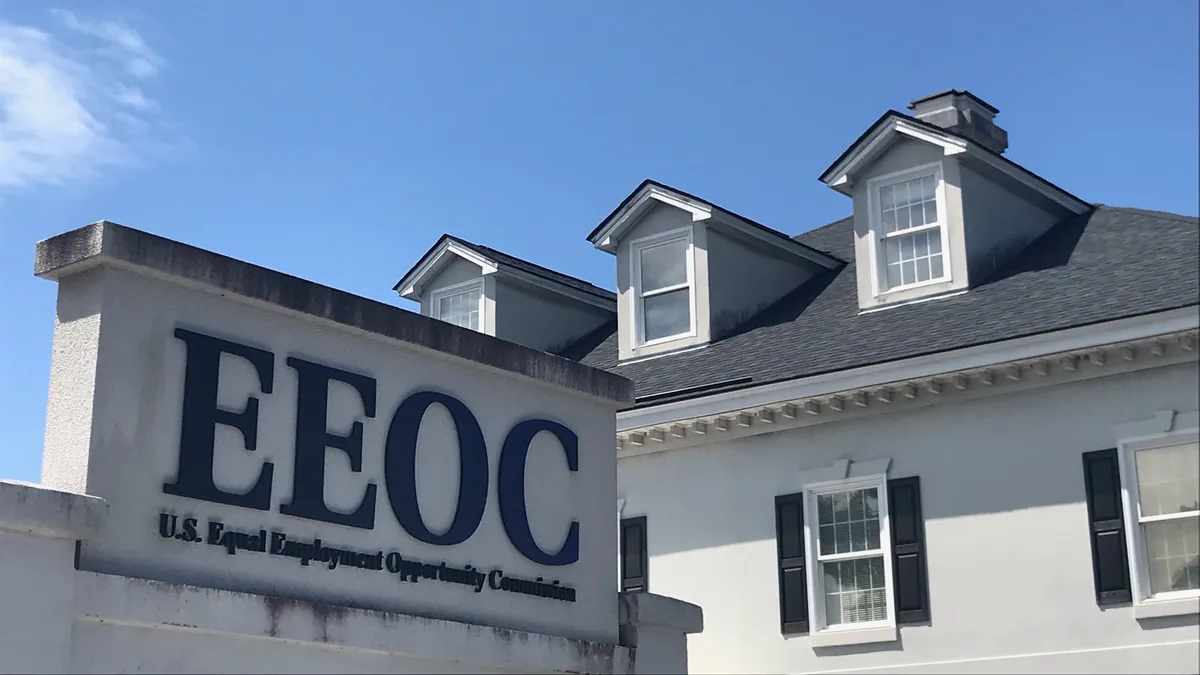A second federal judge in Texas has enjoined the U.S. Equal Employment Opportunity Commission’s June 2021 technical assistance document on LGBTQ workplace discrimination protections under Title VII of the Civil Rights Act (Texas v. EEOC, No. 2:21-cv-194 (N.D. Texas Oct. 1, 2022)).
The guidance, issued by EEOC after the U.S. Supreme Court’s ruling in Bostock v. Clayton County, Ga., had previously been struck down last July by a federal judge in Tennessee after 20 states filed a motion for preliminary injunction.
In the most recent ruling, Judge Matthew J. Kacsmaryk delivered a complex decision, holding that while the EEOC’s guidance was not “arbitrary and capricious” as alleged by the state of Texas, it misread and misapplied the Supreme Court’s ruling in Bostock.
Specifically, Kacsmaryk said EEOC erred when it published guidance that applied the Bostock decision to all correlated conduct — including workplace policies and practices regarding employee dress, bathroom use and pronoun use — rather than that which focused solely on an individual’s LGBTQ status.
Though EEOC relied on other Title VII cases and agency decisions in creating the guidance, the commission “cannot rely on the words and reasoning of Bostock itself to explain why the [Supreme Court] prejudged what the Court expressly refused to prejudge,” Kacsmaryk wrote. He also held that the guidance violated Title VII, the Administrative Procedure Act and EEOC’s own agency rules.
The decision added further fuel to a partisan divide both within and outside of the agency’s confines over its application of Bostock, among other issues. In a statement published to Twitter Oct. 6, Commissioner Andrea Lucas, a Republican, applauded the court’s ruling. Lucas had issued a similar statement following the aforementioned July decision.
Agencies are not all-powerful. Rules & limits matter. The consequences for the @USEEOC's substantive & administrative overreach keep coming--this week a federal judge declared EEOC post-Bostock directives unlawful. My full statement is below. pic.twitter.com/lNj0s3Ly7a
— Andrea R. Lucas (@andrealucasEEOC) October 6, 2022
“Agencies are not all-powerful,” Lucas said in the Oct. 6 statement. “Rules and limits matter. Agencies like the EEOC can exercise only those powers granted to us by Congress via statute, as interpreted by the Supreme Court — and nothing more.”
Similarly, the technical assistance document recently featured in a letter to EEOC Chair Charlotte Burrows from two Republican Congressional lawmakers. The letter argued that the document “went far beyond” the High Court’s decision in Bostock.
An EEOC spokesperson referred HR Dive to the U.S. Department of Justice. A request for comment was filed via online form with the DOJ, but was not returned to HR Dive by press time.
Previously, an EEOC spokesperson told HR Dive following the July injunction that the EEOC chair “may issue technical assistance that simply ‘reiterate[es] already established Commission policies’ without presenting the new document to the Commission for a vote. Consistent with that definition of technical assistance, the fact sheet issued in June 2021 summarized the Supreme Court’s decision in Bostock v. Clayton County and then reiterated EEOC’s established and longstanding positions on a variety of issues relating to sexual orientation and gender identity discrimination.”
Controversy over the guidance comes as the Biden administration looks to cement a Democratic majority on the commission. Though currently chaired by Burrows, a Democrat, the EEOC consists of a 3-2 Republican majority. The majority could shift, however, in the event that the U.S. Senate confirms Biden administration nominee Kalpana Kotagal to serve as commissioner.














